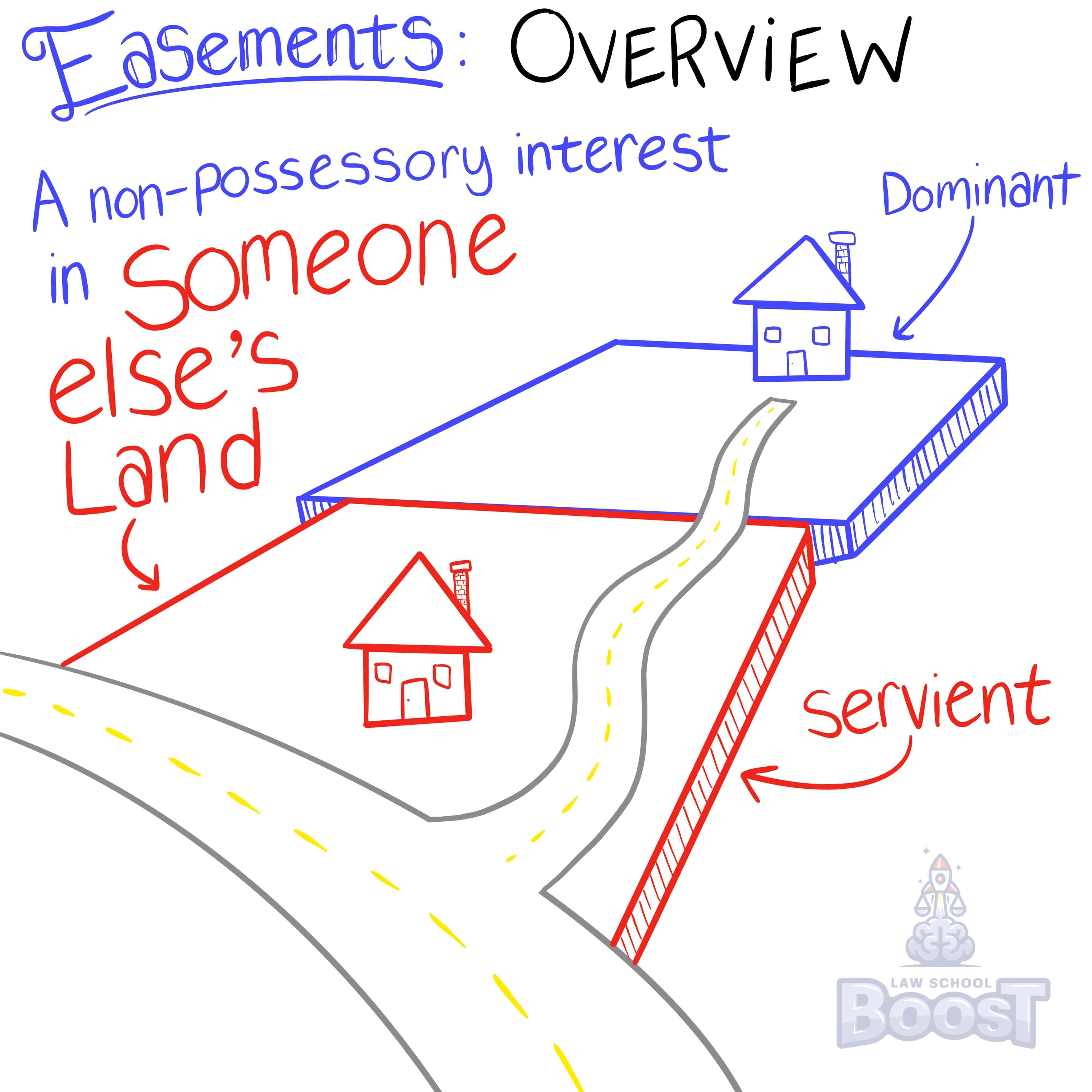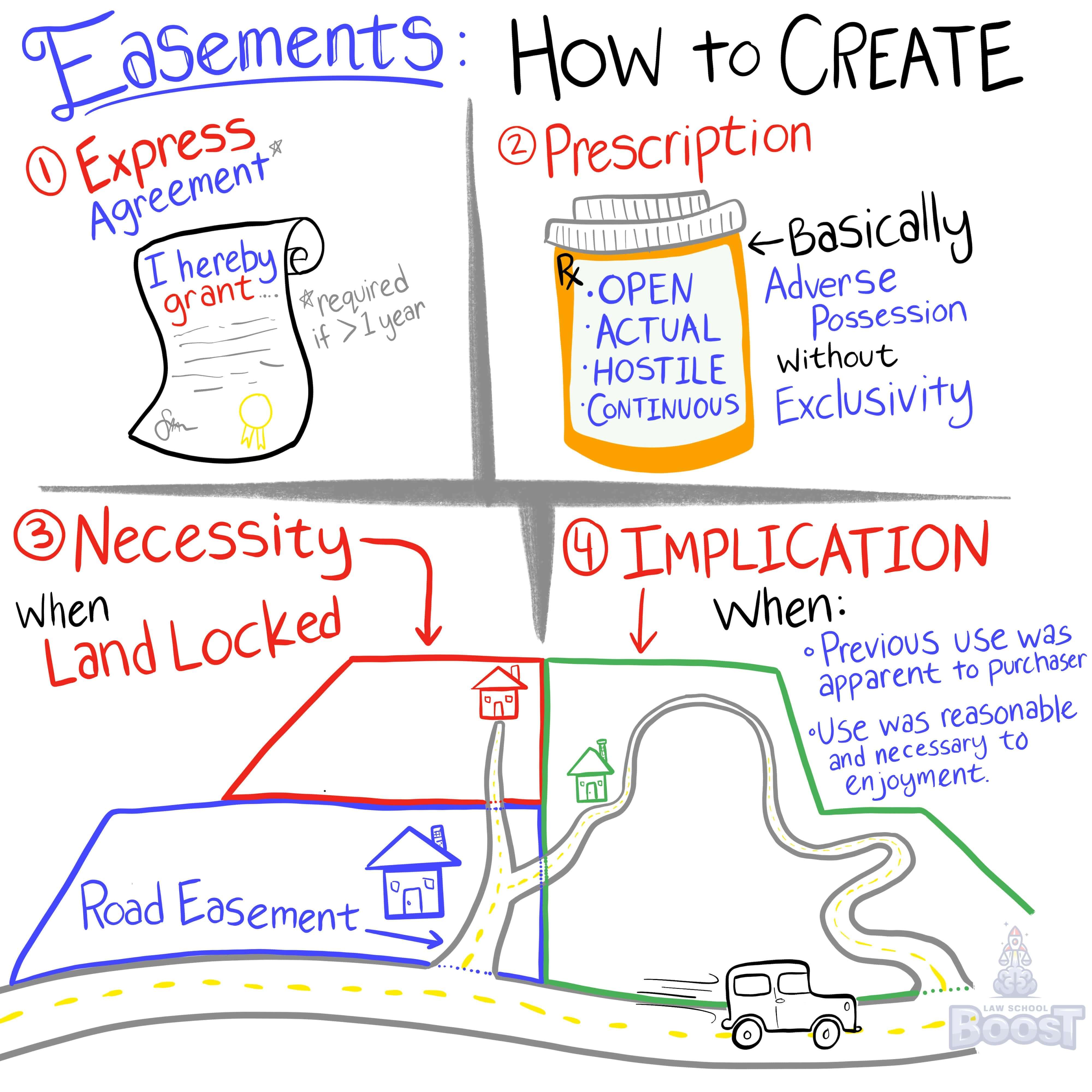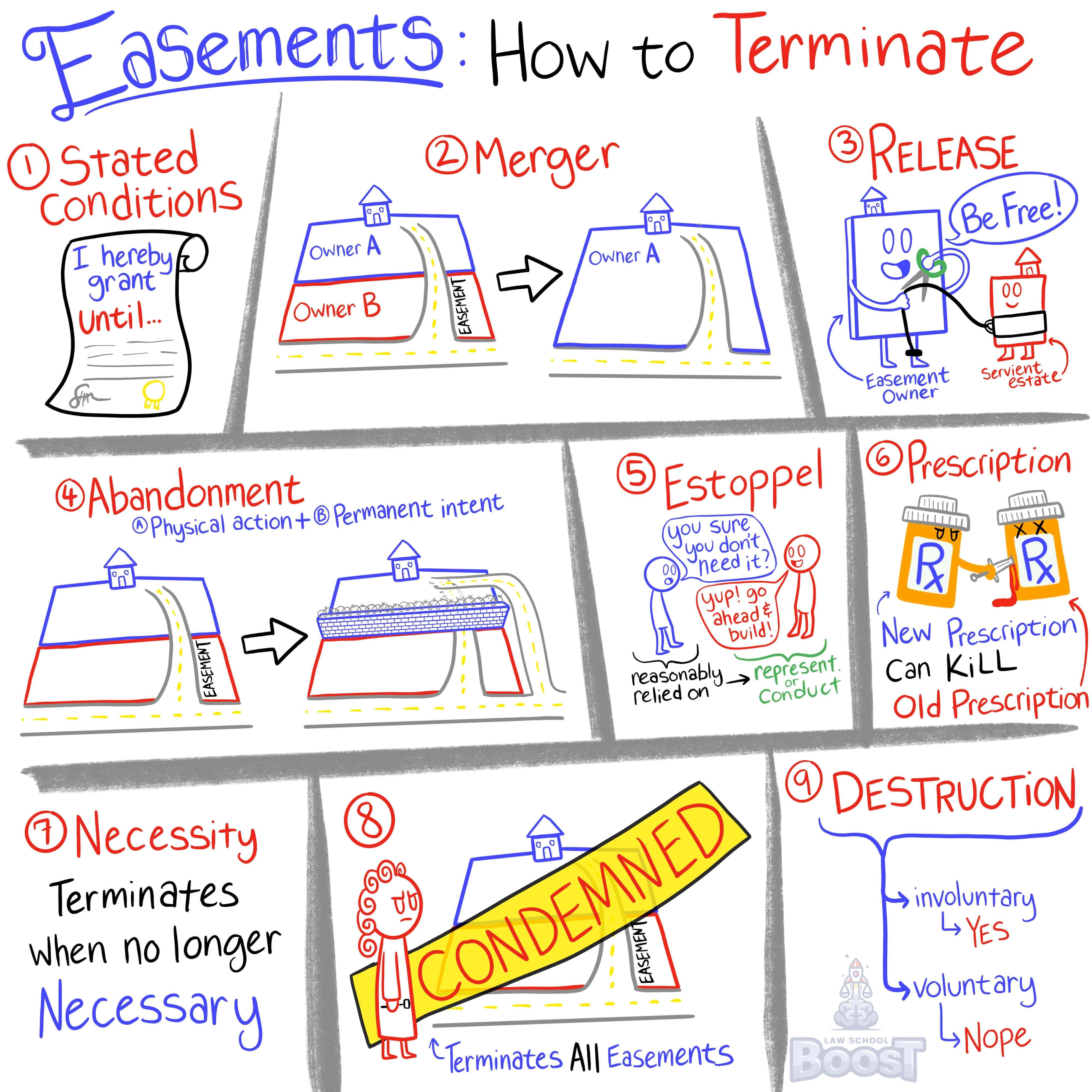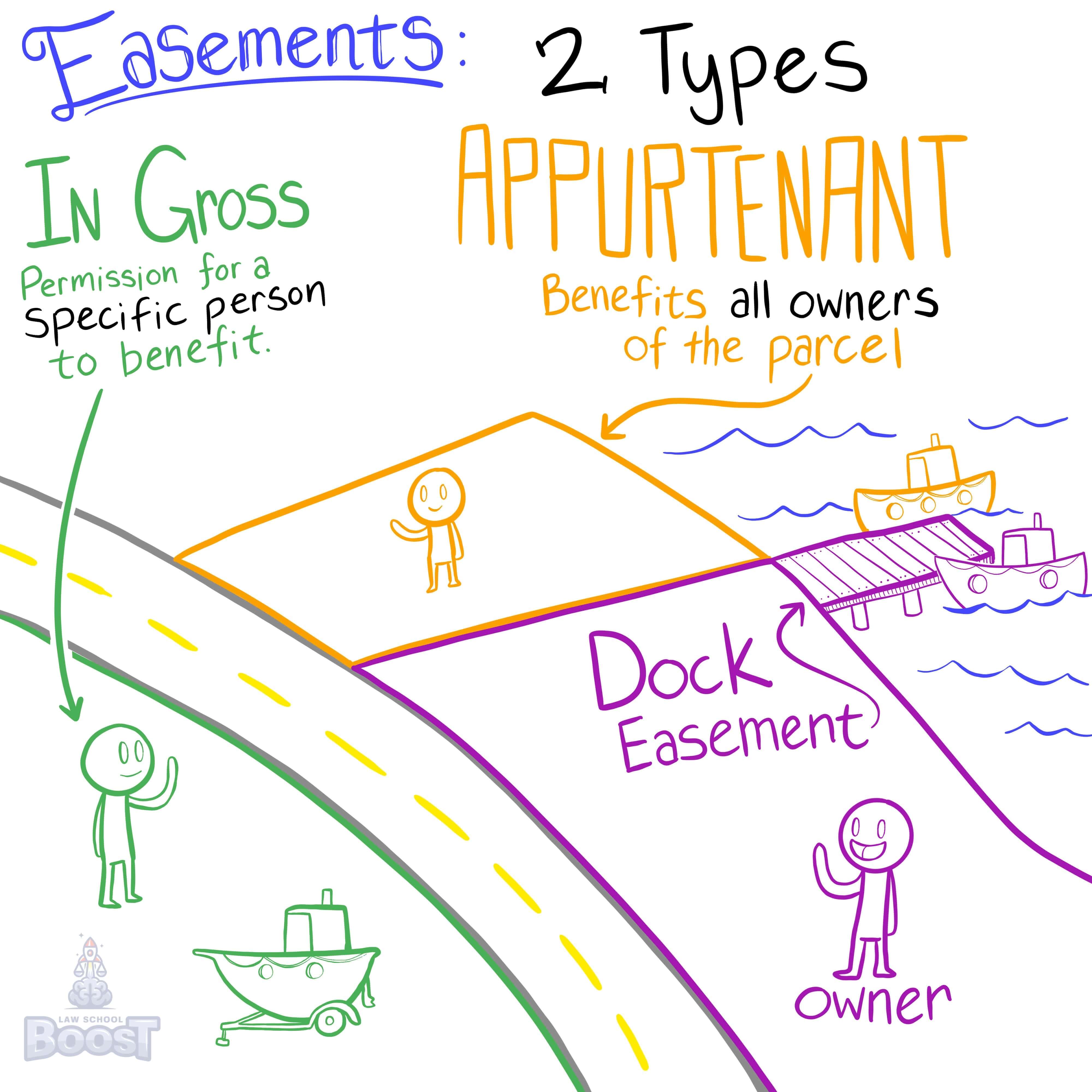😀
Real Property • Easements
PROP#102
Legal Definition
An easement in gross allows its holder the right to use the servient tenement independent of another parcel of land. It attaches to the person. Where the easement is for the holder's personal pleasure, it is non-transferable, but one that serves an economic or commercial interest is transferable.
Plain English Explanation
Unlike easements appurtenant, which provide a benefit to all possessors of a parcel of land, an easement in gross is an easement that is given to a specific person. For example, imagine that Bob owns a parcel of land with a boat dock on a lake. An easement appurtenant would be an easement that provides all possessors of a specific, neighboring piece of land the right to access Bob's dock. An easement in gross is an easement that allows a specific person (who doesn't own a parcel that touches Bob's land) the same right.
Imagine if Amy and Bob both owned parcels of land next to each other, next to a lake. Amy's parcel has a bunch of rocks on its shore making it difficult to build a dock for her boat. Bob already has a dock. Bob hates Amy, so he explicitly tells her to never use his dock and never trespass on his land. Dan, a friend of Bob's who lives 15 minutes away, recently bought a boat. Bob gives Dan an easement allowing him to make use of his dock when he's in town. Dan has received an easement in gross. It is an easement that specifically attaches to Dan and no one else.
Note that if Dan made use of the easement commercially (if he was a fisherman, for example), the law would allow him to transfer the easement in gross if he, for example, sold his business to someone else.
Imagine if Amy and Bob both owned parcels of land next to each other, next to a lake. Amy's parcel has a bunch of rocks on its shore making it difficult to build a dock for her boat. Bob already has a dock. Bob hates Amy, so he explicitly tells her to never use his dock and never trespass on his land. Dan, a friend of Bob's who lives 15 minutes away, recently bought a boat. Bob gives Dan an easement allowing him to make use of his dock when he's in town. Dan has received an easement in gross. It is an easement that specifically attaches to Dan and no one else.
Note that if Dan made use of the easement commercially (if he was a fisherman, for example), the law would allow him to transfer the easement in gross if he, for example, sold his business to someone else.
Visual Aids




Related Concepts
How can an easement be terminated?
How is an easement created?
How is an easement terminated via abandonment?
How is an easement terminated via destruction or condemnation?
How is an easement terminated via estoppel?
How is an easement terminated via prescription?
How is an easement terminated via release?
How is an easement terminated via stated condition?
How is an easement terminated via unity of ownership?
If the holder of an easement misuses it, does the easement terminate?
In assessing an easement, who has a duty to make repairs?
In assessing a property law issue, how may a license become irrevocable?
In assessing a property law issue, what is a license?
What constitutes a valid easement by express grant?
What is an affirmative easement?
What is an easement?
What is an easement appurtenant?
What is an easement by prescription and how is it acquired?
What is a negative easement?
What is the difference between a license and an easement?
What is the result of a failed attempt to create an easement?
When does an easement by express reservation arise?
When does an easement by necessity arise?
When does an easement by necessity terminate?
When may an easement be implied without preexisting use?
When may existing use create an implied easement?


